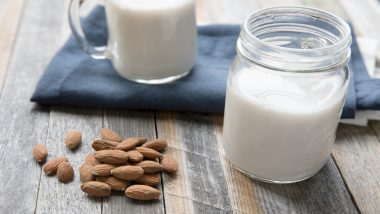Bhubaneswar, January 14: Odisha's Fisheries and Animal Resources Development Minister Gokulananda Mallik on Tuesday said the state government is planning to include 200 ml of fortified milk in mid-day meals for school children. The minister's comment comes a day after President Droupadi Murmu virtually launched a 'Gift Milk' initiative of the National Dairy Development Board (NDDB) for the Odisha State Cooperative Milk Producers' Federation (OMFED) at Rairangpur in Mayurbhanj district.
Stating that the 'Gift Milk' programme was launched on Monday in 29 schools in Rairangpur, the home town of the president, Mallik said the initiative aims at addressing malnutrition among children by providing 200 ml of milk fortified with Vitamin A & D on school days. As many as 1,184 students in these schools, spread over 200 villages of the Rairangpur sub-division of Mayurbhanj district, will benefit from the NDDB's 'Gift Milk' programme in the first phase, which was introduced on a pilot basis, Mallik said. Odisha Govt Fits GPS Tracker on Two Birds to Study Migratory Pattern.
"The initiative will be extended to other parts of the state later," the minister said. Presently, around 44.5 lakh children of 51,500 primary and upper primary schools are being served with cooked food under the mid-day meal scheme. The minister also said 3,000 high-quality cows procured from Gujarat are to be distributed among dairy farmers in Mayurbhanj. It is planned to spend Rs 38 crore under the Rashtriya Gokul Mission launched by NDDB in Mayurbhanj. BJD Govt Deprived People of 'Ayushman Bharat' Benefits for Its Interest, Alleges Odisha CM.
The minister said the objective of the initiative is to make dairy farmers self-sufficient and ensure a stable rural economy. He also said that the state aims to develop cattle wealth in the state under the 'Mukshya Mantri Kamadhenu Yojana', a five-year initiative with a budget of Rs 1,423.47 crore. The objective of the scheme is to boost milk production in the state, he said. This scheme will support small dairy units, provide subsidised calf feed, enhance livestock insurance coverage, and strengthen dairy cooperatives, he added.













 Quickly
Quickly


